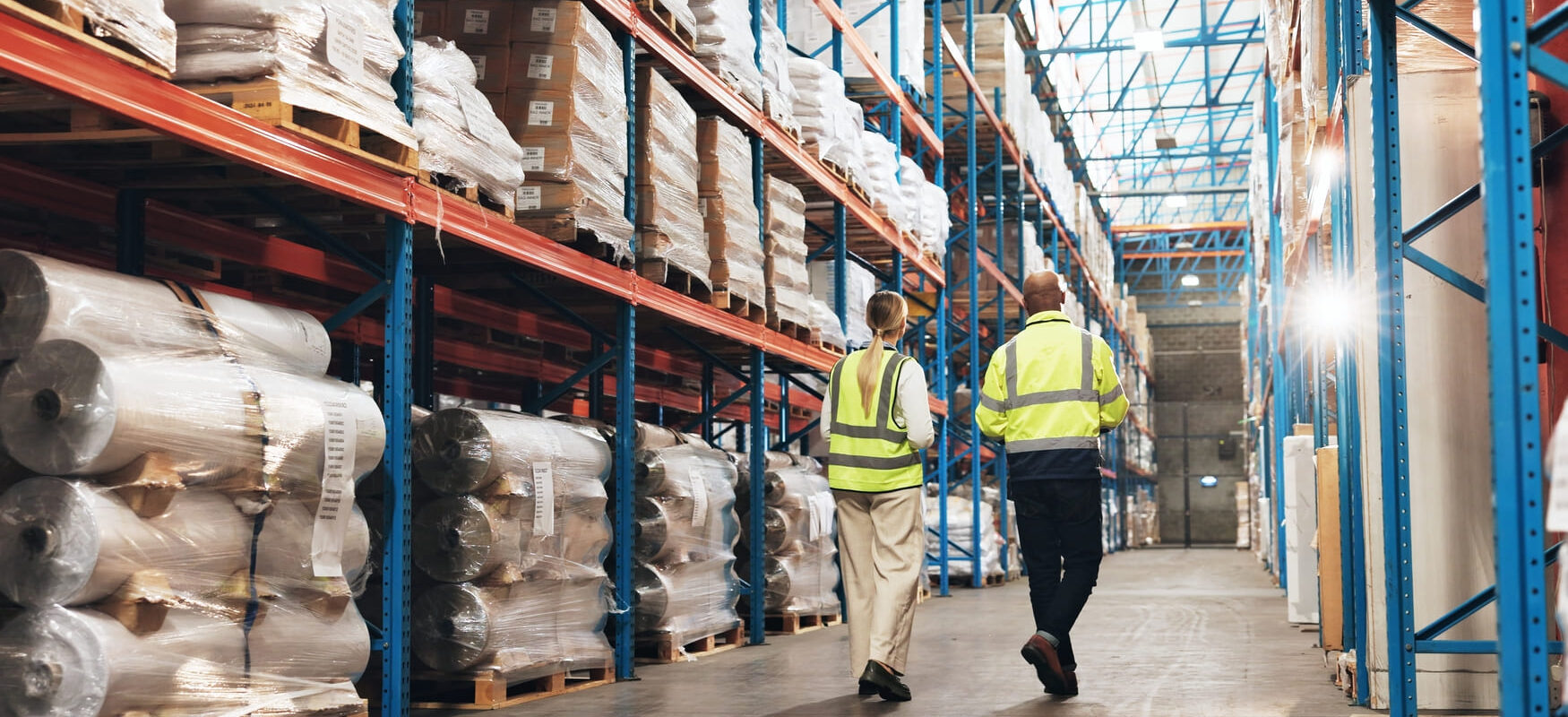Warehouse Logistics: Definition, Core Functions & Best Practices for Supply Chain Efficiency

Warehouse logistics sits at the heart of every supply chain. It covers everything it takes to move goods smoothly inside a warehouse—from receiving and storing products to tracking inventory, picking, packing and shipping orders. When these processes run well, suppliers deliver on time, retailers keep shelves stocked and customers receive orders without delay. This guide explains what warehouse logistics is, why it matters, how to optimize each function and when to partner with a third‑party logistics (3PL) provider.
What Is Warehouse Logistics?
Warehouse logistics refers to the detailed planning and execution of all activities in a warehouse – from receiving and storing products to picking, packing, and shipping them. In other words, it encompasses the flow of physical goods (inventory in and out of the warehouse) as well as the information that accompanies them. A concise definition is: “Warehouse logistics is the process of organizing, coordinating, managing, and implementing the storage and movement of goods in a warehouse.”. Well-managed warehouse logistics keeps products properly accounted for and ready to ship, which in turn increases operational efficiency.
Why Warehouse Logistics Matters
Effective warehouse logistics delivers tangible benefits:
Stronger supply chain performance: When warehouse logistics is well managed, suppliers, retailers and customers stay aligned, making the entire supply chain more reliable.
Reduced costs: Streamlined processes save money by making better use of space, reducing labor and avoiding errors.
Improved efficiency: Well‑run warehouses keep products moving without bottlenecks and adapt quickly to changing demand.
Better customer satisfaction: Fast and accurate order fulfillment builds trust; delays or mistakes create frustration.
Key Functions of Warehouse Logistics
A successful warehouse operation is built on a few core functions:
- Receiving – Accepting goods from suppliers; unloading, inspecting and verifying them against purchase orders prevents errors.
- Putaway – Storing items in the correct location maximizes space and improves retrieval efficiency.
- Inventory management – Monitoring stock levels and demand forecasts reduces stockouts and overstock situations.
- Picking and packing – Accurately selecting items and securely packing them for shipment ensures customer satisfaction.
- Shipping – Dispatching orders swiftly to the next destination delivers products on time.
- Storage and control – Keeping products organized and protected reduces waste, damage and delays.
Value‑added services
Beyond the basics, many warehouses offer value‑added services such as labeling, kitting, assembly and returns processing. These services tailor products before shipment and enhance customer experience.
Best Practices to Optimize Warehouse Logistics
Modern warehousing combines people, processes and technology. The following best practices help improve efficiency, accuracy and sustainability.
Implement a Warehouse Management System (WMS)
A Warehouse Management System (WMS) is software that manages day‑to‑day warehouse operations and acts as the foundation for other technologies. A WMS provides real‑time visibility into inventory and automates tasks like receiving, picking, packing and shipping, reducing manual errors and improving order accuracy. Benefits include:
- Real‑time inventory tracking and automated order routing.
- Labor management tools and performance analytics.
- Integration with other systems such as transportation management and ERP.
Optimize Warehouse Layout and Slotting
A well‑organized layout shortens travel time and improves safety. Key tips include using vertical space, grouping high‑demand items in easily accessible areas, designing efficient aisles, and zoning similar products together. Optimizing slotting and picking paths reduces wasted motion and speeds up order fulfillment.
Leverage Automation and Technology
Automation tools—such as barcode scanning, RFID, autonomous mobile robots (AMRs), automated guided vehicles (AGVs) and robotic process automation (RPA)—reduce human error and speed up repetitive tasks. IoT sensors provide real‑time monitoring of environmental conditions and equipment status. Advanced automation like digital twins and predictive analytics optimize layout and forecast demand.
Adopt Lean Inventory Management
Lean inventory practices minimize waste and maintain optimal stock levels. Strategies include just‑in‑time replenishment, continuous improvement, demand forecasting and close supplier collaboration. Proper rotation—such as First‑In First‑Out (FIFO)—prevents expired stock and reduces write‑offs.
Enhance Order Fulfillment Processes
Streamlined order fulfillment keeps customers happy. Techniques include batch picking, automated packing and cross‑docking to reduce handling and storage time. Real‑time order tracking provides transparency for customers and helps businesses respond quickly to issues.
Invest in Workforce Training and Safety
Well‑trained employees are critical to warehouse efficiency. Training should cover equipment operation, safety protocols, inventory management and use of WMS technologies. Clear traffic flow, safety barriers and regular safety audits prevent accidents.
Monitor Key Performance Indicators (KPIs)
Tracking KPIs such as inventory turnover, order accuracy, cycle time and capacity utilization helps identify bottlenecks and drive continuous improvement. Data‑driven performance measurement ensures issues are addressed before they impact operations.
Implement Sustainable Practices
Green warehousing reduces environmental impact and operating costs. Practices include energy‑efficient lighting, renewable energy, waste reduction, sustainable packaging and optimized delivery routes. These initiatives strengthen brand reputation and support long‑term efficiency.
Overcoming Common Warehouse Logistics Challenges
Even efficient warehouses face challenges. Common issues include space constraints, labor shortages, errors and seasonal demand fluctuations. Solutions include:
- Space constraints: Use vertical storage solutions and on‑demand warehousing to expand capacity.
- Labor shortages: Cross‑train staff, offer competitive wages and use automation during peak seasons.
- Transportation delays: Collaborate with carriers, leverage real‑time tracking and diversify shipping options.
- Inventory inaccuracies: Adopt WMS and barcode scanning to reduce mis‑picks and shrinkage.
- Seasonal fluctuations: Use flexible staffing and 3PL partnerships to scale up during peak periods.
Third‑Party Logistics (3PL) Warehouses
A Third‑Party Logistics (3PL) provider is an outsourced partner that helps businesses manage warehousing, distribution and fulfillment. 3PLs offer specialized services and expertise, allowing companies to focus on core competencies while benefiting from external infrastructure and technology. Services typically include inventory management, picking and packing, order processing, shipping and returns management. For growing businesses, partnering with a 3PL provides flexibility, scalability and cost savings, especially during seasonal spikes or market expansion.
For businesses in the USA, locating a nearby warehouse can further cut costs. In fact, choosing a warehouse close to your customers or suppliers can “reduce transportation costs and lead times”. This is why on-demand warehousing platforms and national 3PL networks are popular: they help you find a “logistics warehouse near me” that optimizes shipping routes. Such proximity means faster delivery to customers and lower last-mile expenses.
OLIMP Warehousing & Logistics Services
OLIMP offers nationwide warehousing and fulfillment solutions tailored to small businesses and online retailers. Our network of secure warehouses and fulfillment centers provides flexible storage, advanced inventory management and value‑added services. Whether you need short‑term overflow space or a multi‑state solution, we can match you with the right warehouse location near your customers, reducing transportation costs and lead times. Contact us to request a quote and see how OLIMP can streamline your warehouse logistics.
Frequently Asked Questions (FAQ) – OLIMP Warehousing
Q: How does warehouse logistics differ from supply chain management?
Warehouse logistics is specifically about internal warehouse operations, whereas logistics and supply chain management encompass broader activities like transportation, supplier coordination, and customer delivery.
Q: What are the three key parts of warehouse logistics?
- The main components include:Warehouse operations (receiving, storage, picking/packing, shipping)
Warehouse management systems (WMS) to coordinate workflows
Inventory control and material handling, like forklifts and conveyors
Q: What challenges are common in warehouse logistics?
Issues often include delayed order fulfillment, increased labor and operating costs, inventory inaccuracies (leading to shrinkage or dead stock), and disrupted workflows from supply chain hiccups .
Q: How can warehouse logistics be optimized?
Top strategies include:
Cross‑training staff for flexibility
Maintaining strong safety protocols
Using automation and WMS
Streamlining warehouse layout and operations .
Q: What is a 3PL warehouse?
A 3PL warehouse is a facility operated by a third‑party logistics provider that manages storage, fulfillment and distribution for client companies. Using a 3PL allows businesses to outsource logistics operations and benefit from specialized expertise, technology and infrastructure.
You may be interested in

Omnichannel Logistics: Strategies for E‑Commerce Success
The surge in e‑commerce has transformed how goods move from producers to consumers. Statista projects that the global last‑mile delivery market will exceed $200 billion by 2027, up from $108.1 billion in 2020. At the same time, research shows that 60 – 70 % of consumers shop both online and in physical stores. These shoppers expect fast shipping, convenient pick‑up options […]

Third-Party Logistics (3PL) Warehousing and Distribution: Process and Tips
Ecommerce businesses rely on trusted partners to manage inventory and fulfill sales, with 3PL Warehousing and Distribution providers being key players in the process. A 3PL partner takes charge of essential supply chain operations such as inventory storage, order fulfillment, and shipping, allowing businesses to focus on what they do best. Effective logistics management is […]

Retail Logistics Solutions: Key Strategies for Retailers
Retail logistics is often described as the backbone of a seamless customer experience. In practice, retail logistics covers every step of getting products from manufacturers or suppliers into store shelves or directly into customers’ hands. It includes transportation, warehousing, inventory management, order fulfillment, and delivery, ensuring the right products are in the right place at […]
Ready to streamline your warehousing needs?
Request a quote today and discover how OLIMP's tailored solutions can optimize your operations